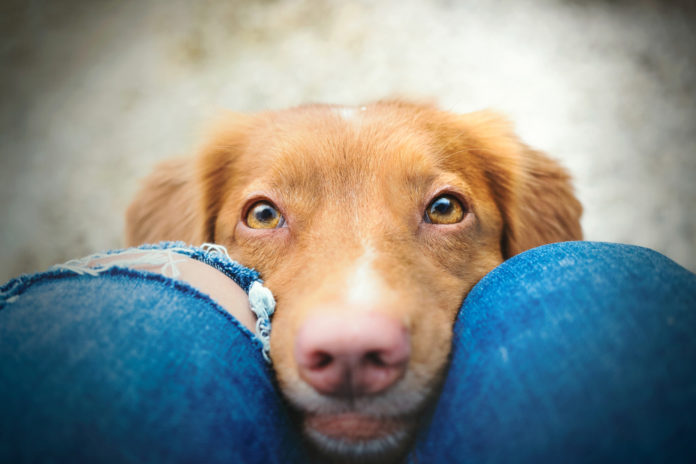Protect your dog or cat’s vision with checkups and antioxidant support

Regular veterinary checkups and antioxidant supplements can help keep your pet’s vision in check.
As dogs and cats age, they may experience some of the same vision concerns we do. But because these animals are good at compensating for vision loss, you may not notice early on that their vision is changing. Their senses of hearing and smell are thousands of times better than ours, which means they have a very good ability to adapt to vision loss. In fact, dogs and cats tend to get around fairly well until they have lost about 80% of their vision in both eyes. At this point, it becomes quite obvious they aren’t seeing well, especially if age-related cognitive decline is also occurring. That’s because we and our animals actually “see” with our brains; our eyes are the collectors of light, packaging it and sending it to the brain for interpretation.
Most often, dogs and cats only end up at the veterinarian’s office with eye problems when their people notice redness, discharge, squinting, and/or cloudiness in the eyes. These clinical signs are good reasons to have your animal checked, of course, as they could signal an injury or infection that needs treatment. Without intervention, a seemingly minor issue could quickly escalate into a serious problem.
Many ocular conditions once considered hopeless are not necessarily so today because animal parents have knowledge on their side. A few steps you can take to support your dog or cat’s vision health include knowing whether he is at risk for an ocular disease (likely related to breed or age); diligently watching for signs of vision change; having your his vision checked annually; and giving daily antioxidant supplements to help maintain the cellular health of the eye, and protect the retina and lens against the damaging effects of oxidative stress.
Oxidative stress occurs when there is an imbalance of free radicals and antioxidants in the body. Free radicals are unstable molecules produced by the body during normal metabolic processes, as well as by external factors such as dietary deficiencies, ongoing stress, or exposure to environmental toxins like pollution and pesticides. Free radicals seek to stabilize themselves by stealing an electron from a healthy molecule. Antioxidants are substances that neutralize or remove free radicals by donating an electron.
The body produces antioxidants naturally, but antioxidants given through diet and supplementation may support already healthy cells while helping to ensure your dog or car is protected from the effects of oxidative stress, which can lead to chronic inflammation and degenerative changes. Antioxidants such as lutein, zeaxanthin, astaxanthin, grapeseed extract, and vitamins C and E may help protect the lens of the eye against a variety of oxidative stressors. Omega-3 fatty acids may complement these antioxidants in support of vision health.
Beginning vision care and prevention early in your dog or cat’s life will offer the best outcomes. In those with declining vision – especially older animals — successful eye health support does not necessarily mean a return to full vision, but it does provide your dog or cat with the best possible quality of life.




